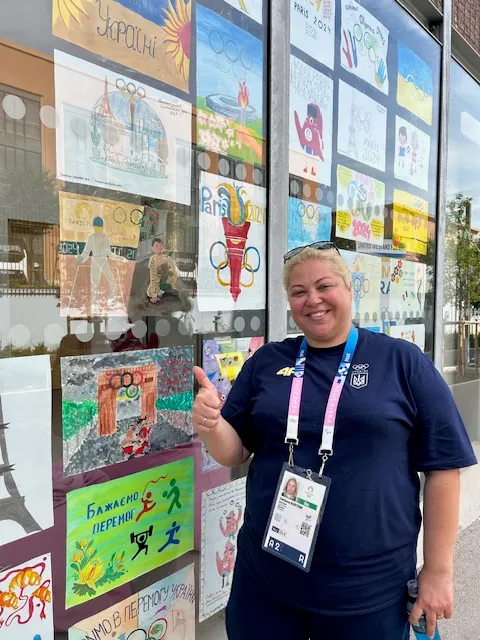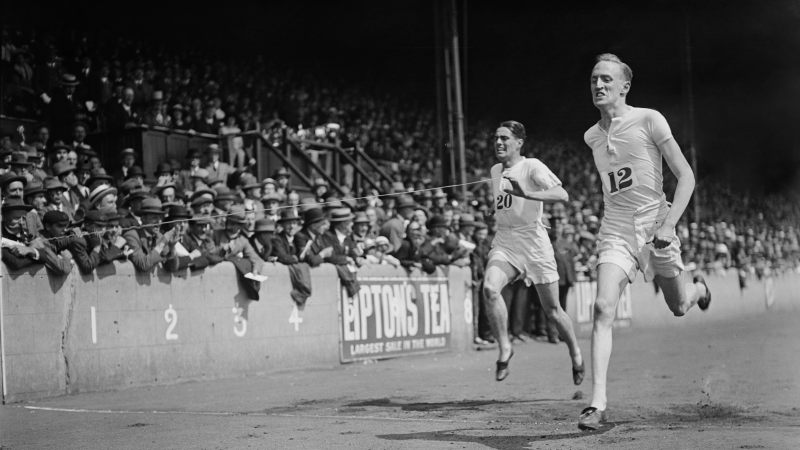Ukraine’s Olympic athletes competing to uplift country amid war with Russia
Editor’s note: FollowOlympics opening ceremony live updates.
SAINT DENIS, France – As she prepared for the 2024 Paris Olympics in hot gyms that lacked air conditioning and often went long stretches without power, Ukrainian fencer Olena Kryvytska sometimes had to stop her training mid-session to take cover in a bomb shelter.
"Sometimes it can be very often, sometimes more rare," Kryvytska told USA Today Sports.
Such has been the life for athletes in the Ukraine for more than two years, since Russia invaded the country in 2022.
Russia is banned from this year’s games, though athletes from the country are allowed to compete as Individual Neutral Athletes, or AINs for short.
Meet Team USA: See which athletes made the U.S. Olympic team and where they are from
Get Olympics updates in your texts! Join USA TODAY Sports' WhatsApp Channel
Ukraine’s delegation includes 140 athletes, and whatever success they have will be shared by the country in what remains a trying time.

"For us, a gold medal in this Olympics, I think it will be gold medal for all our countries," said Tetiana Kurtain, head doctor of Ukraine’s national Olympic committee. "Especially our military men."
Kurtain spoke to USA Today Sports at the Olympic Village on Thursday as she stood in front of a window at the team’s housing unit decorated with dozens of pictures drawn by Ukrainian children and brought to Paris to support the athletes.
One picture, from a student at School No. 78 in the capital city of Kyiv, showed a fencer standing alongside a soldier with words Kurtain translated to mean well wishes for the country’s sportsmen and good luck, strength and safety to its soldiers.
"For our sportsmen of course this is so hard, the games, because we have a very special situation in our country," Kurtain said. "Mental health is very strong and they very much make it about this game because they need it to win in this game, because they all support our people from our country and our military men from our country, too."
Kurtain, whose work has expanded to include soldiers since the start of the war, said about half of her country’s Olympic athletes trained in Kyiv or elsewhere in the country while others moved to foreign soil.
Rather than gather the entire delegation in the Ukraine before the games, Kurtain said they held sports camps elsewhere in Europe. Ukrainian press attaché Maksym Cheberiaka said one was funded by the French ministry of sports.
"Every day we have bomb attack," Kurtain said. "Bomb attack every day and every day we have alarm and all the sportsmen need to train, continue training in a safe place, and all time we need to stop training and move to safe place, and it’s all time, all day. Some days we can do this three or four (times)."
Kryvytska, whose brother is on the front line fighting in the war, according to Reuters, said she regularly practiced in gyms with temperatures of 40 degrees Celsius (104 degrees Fahrenheit) because of attacks on Ukraine’s electric grid.
"Very hot," she said. "No (air) conditioners, no like working apparatus like with fencing we need to have. And when the massive attacks, the missiles attack, (it) alarms so we can’t."
The USA TODAY app gets you to the heart of the news — fast. Download for award-winning coverage, crosswords, audio storytelling, the eNewspaper and more.
Other competitors from around the globe said they can’t fathom having to train in the conditions Ukraine athletes have had to endure ahead of the Olympics.
The Canadian artistic swimming duet of Audrey Lamothe and Jacqueline Simoneau said they gave their Ukrainian counterparts – one of their top medal foes at the Olympics – hair pins at the last World Cup just so they could compete.
"Definitely in our sport we really need to have 100% of our concentration and 100% of our awareness, and if I imagine me thinking of all of what’s going on outside, it will be another stress factor that it’s going on top of what our sport is demanding," Lamothe said.
Simoneau said her and Lamothe’s training venue at the Olympic Stadium in Montreal caught fire in April and forced a difficult and "huge shift" in their Olympic preparation that is "so miniscule compared to what they’re facing."
"I mean, we have so much sympathy and compassion to what they’re facing right now, it’s really, it’s a crazy situation," she said. "(We were) bouncing between training venues. Outside, inside, not ideal training conditions, but at least there’s no bombs on us. At least there’s no war going on. We’re in a good country, there’s nothing really that’s inhibiting us from training."
A Ukrainian coach who told USA Today Sports he did not speak fluent enough English to conduct an interview said, "I thank your country very much for support for my country," as he walked into Ukraine’s building Wednesday.
Kryvytska said she wanted people to know "that the war is still in Ukraine and it’s terrible and every day it takes a lot of lives."

And at these Olympics, Ukrainian athletes are competing for more than themselves, with a chance to uplift their country, even if temporary.
"It’s so hard, but it is our work now," Kurtain said. "It’s a hard time, but hard time it will build good people, strong people."
Disclaimer: The copyright of this article belongs to the original author. Reposting this article is solely for the purpose of information dissemination and does not constitute any investment advice. If there is any infringement, please contact us immediately. We will make corrections or deletions as necessary. Thank you.







